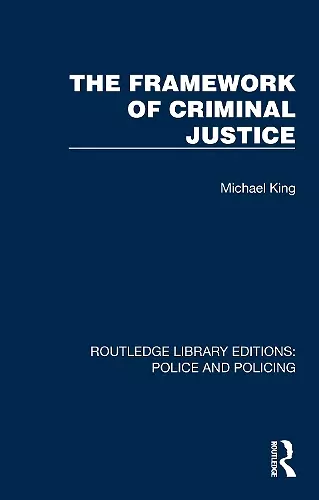The Framework of Criminal Justice
Format:Hardback
Publisher:Taylor & Francis Ltd
Published:31st Mar '23
Currently unavailable, and unfortunately no date known when it will be back

In The Framework of Criminal Justice, originally published in 1981, the criminal justice process is analysed by using six models, each of which expresses a different justification for criminal justice and punishment: the due process model – exacting justice between equal parties; the crime control model – punishing wrong and preventing further crime; the bureaucratic model – controlling crime and criminals; the medical model – rehabilitating offenders; the status passage model – publicly denouncing the crime and criminal; and the power model – maintaining domination by the ruling class and reinforcing class values. The study examines the formal rules and procedures of the magistrate court system within the context of these models and also discusses the roles of the actors (police, defendant, magistrate, court clerks, and lawyers). Next, the study depicts eight scenes that occur from the defendant's arrest through a court hearing to sentencing. It assesses how closely the activity and behaviour within the system follow the formal protections granted by the British system of justice, and it concludes that the process is far more complex and the rules far more open to interpretation than is commonly believed. The book suggests that this miscalculation has led to the failure of various reforms – special attention is given to the Bail Reform Act of 1976 and two sections of the Criminal Law Act of 1977. It further suggests that real reform must depend upon an understanding of the political nature of the criminal justice system.
"In the four decades since this book appeared, few scholars have written about the criminal justice system in such a succinct yet insightful way. In the same period, the criminal justice system has generated many more controversies and we have witnessed deepened divisions of opinion regarding the system’s means, impacts and objectives. Michael King’s book offers a set of theoretical lenses still useful for teasing out and challenging our thinking about what is wrong now, and what might be done to change things for the better."
Andrew Goldsmith, Matthew Flinders Distinguished Emeritus Professor of Criminology, Flinders University, and Visiting Fellow, School of Regulation and Global Governance, Australian National University.
ISBN: 9781032421667
Dimensions: unknown
Weight: 490g
178 pages